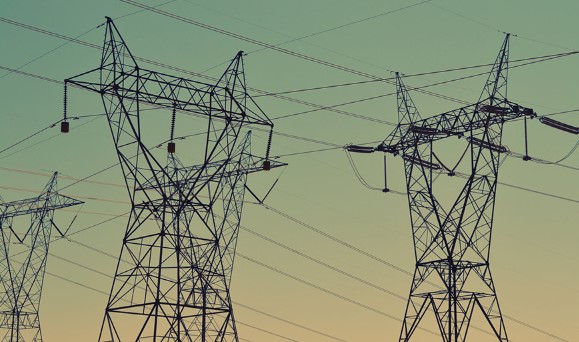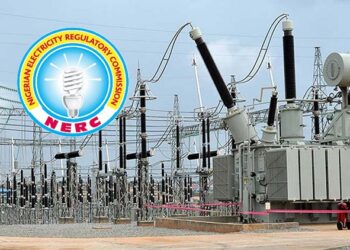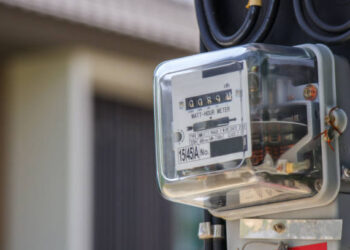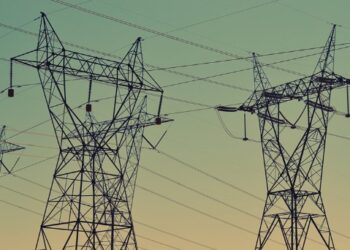Nigeria’s Power sector has evolved over the years with improved investments by both the government and private businesses, but it is far from achieving reliable and sustainable energy for all its citizens.
Amidst numerous challenges, the sector recorded notable activities and developments this year, from policy reforms and infrastructure upgrades to increased private sector participation and investments in renewable energy.
It also recorded the highest number of grid collapses in a single year.
As the country strives to bridge its energy gap and power its growing economy, the notable events and developments in the power and utility sector will shape the country’s future as we draw the curtains on 2024 and knock on the new year.
Q1
MOFI takes over FG’s stake in 11 DisCos (January)
The Ministry of Finance Incorporated (MOFI) officially assumed ownership and management of the Federal Government’s 40% equity in the Electricity Distribution Companies (DisCos). This transition aligns with MOFI’s mandate to ensure efficiency in managing these companies and boost government revenue.
Context
During the 2013 privatization of the 11 DisCos, MOFI granted a Power of Attorney (PoA) to the Bureau of Public Enterprises (BPE) to manage the government’s retained 40% shares. However, this arrangement was recently revised. In two separate letters signed by the Minister of Finance and Coordinating Minister for the Economy, as well as MOFI’s CEO, the PoA was terminated.
This decision underscores the government’s intent to centralize ownership, management, and control of its equity holdings under MOFI, as stipulated in the agency’s founding legislation.
Key Changes
- Reporting Requirements: DisCos are required to submit board minutes, reports, plans, and financial statements from 2021 to 2023 to MOFI.
- Director Changes: BPE-appointed directors on the boards of DisCos have been withdrawn.
- Share Reconfiguration: Existing share certificates held by BPE will be canceled, and new ones will be issued in MOFI’s name.
Why It Matters
This shift marks a significant step toward professionalizing and centralizing the management of government-owned assets in the power sector, a sector long hampered by inefficiency and financial mismanagement.
By consolidating control under MOFI, the government aims to enhance governance, accountability, and operational efficiency. This restructuring could also attract private sector investment, stabilize the power supply, and expand electricity infrastructure.
For Nigerians, this move holds the potential for improved electricity services and a more sustainable energy sector, addressing one of the country’s critical development challenges.
President Bola Tinubu signed the Electricity Act (Amendment) Bill 2024 (February)
President Bola Ahmed Tinubu signed the Electricity Act (Amendment) Bill 2024 into law on February 9, marking a significant development in Nigeria’s efforts to reform its power sector.
The Electricity Act (Amendment) Bill, 2024, seeks to “address the development and environmental concerns of host communities, and sets aside five percent of the actual annual operating expenditures of power generating companies from the preceding year for the development of their respective host communities.”
Context:
This development follows the recognition of the urgent need to reform Nigeria’s electricity infrastructure, which has faced issues of instability, insufficient investment, and inadequate access, especially in rural areas.
Also, the Bill has measures to empower the Nigerian Electricity Regulatory Commission (NERC) to enforce stricter compliance with industry standards and encourage the transition towards cleaner energy alternatives became more imperative
Why It Matters:
This move is seen as a crucial step toward addressing Nigeria’s electricity crisis, which has hindered economic growth and development for decades. By fostering a more transparent and sustainable energy framework, the amendment is expected to pave the way for increased foreign investments, more reliable power supply, and the creation of jobs in the renewable energy sector.
Nigerians on band A feeder get more electricity supply following hike in tariff
In March 2024, the Federal Government announced the removal of subsidies on electricity mostly for customers on Band A feeders, promising them improved supply.
The government argued that the removal of the electricity subsidy was to improve supply and allow it to pay off its mounting debt in the utility sector.
Context
At the time, the federal government owed electricity-generating companies over a trillion naira while the generating subsector grappled with poor gas supply in power plants.
Various stakeholders in the Power sector had urged the federal government to pay the debts it owed GenCos. In the same vein, the President had promised to address the energy poverty faced by the majority of Nigerians.
Why it matters
- According to a 2023 study, 68% of Nigerians received less than 10 hours of electricity supply per day, while only less than 10% of Nigerians received above 15 hours of electricity per day.
- Since the hike of electricity for Nigerians on Band A feeders, the government has insisted that they enjoy a minimum of 20 hours of electricity.
- In September 2024, the Minister of Power said that about 40% of Nigerians now enjoy over 20 hours of electricity supply. The National Bureau of Statistics, in its “Nigeria Residential Energy Demand-side Survey Report 2024” noted that 86.6% of Nigerians had electricity supply for an average of 6.6 hours per day.
Power minister pledges transparency in metering system
In February 2024, Nigeria’s Minister of Power, Adebayo Adelabu, pledged to ensure all households and businesses are properly metered.
Adelabu stated this in Okene, Central senatorial district of Kogi State when he commissioned a 60MVA, 132/33kV power transformer within the Okene Transmission Substation.
Context
The project which was awarded on the 6th of March 2023 under the Presidential Power Initiative was aimed at improving power supply to parts of Kogi, Edo, and Ondo states.
Why it matters?
Providing metres to Nigerians helps ensure accountability in electricity billing by distribution companies. With accountable billing comes fairness and efficiency in fee collection.
Q2
Govt to patronise local electricity equipment manufacturers
In May 2024, the Federal Government said it would patronise local manufacturers for electricity equipment.
Context:
The Minister of Power, Bayo Adelabu promised that agencies under the Ministry of Power would be encouraged to patronise local manufacturers.
Why it matters
This patronage will boost sales for local manufacturers in the electronics market, and consequently impact the country’s economy positively. This is coming at a time when manufacturers lament about high production cost and poor sales as a result of inflation.
AfDB approves $500 million loan to boost electricity access in Nigeria (June)
The Board of Directors of the African Development Bank Group approved a loan of $500 million to Nigeria, to finance the first phase of the Economic Governance and Energy Transition Support Program (EGET-SP), a new program aimed at accelerating transformation of the country’s electricity infrastructure and improving access to cleaner sources of energy.
Context
The Nigerian government launched the energy transition plan in August 2022, and in June 2023, passed a new Electricity Act decentralizing the electricity supply industry and setting the stage for increased investments by subnational governments and the private sector.
The energy transition plan envisions the development, by 2050, of 250 GW of installed electricity capacity, 90% of which will be renewable. It will provide clean cooking access to the bulk of the population by 2030, using liquefied petroleum gas (LPG), biogas, biofuels like ethanol, and electric cookstoves.
Why it matters
This initiative helps deliver much-needed upgrades of Nigeria’s electricity infrastructure, and fast-tracking the country’s efforts to transition millions of households and businesses to cleaner and renewable sources of energy.
USAID to invest N115bn in Nigeria’s power sector (July)
The United States Agency for International Development and the Federal Ministry of Power signed a memorandum of understanding to secure Nigeria’s commitment to electricity sector reforms, market transparency, liquidity, and expanding access to affordable power.
Context
More than 85 million Nigerians have no access to grid power, and many have suffered from unreliable power supply. Given these challenges, many Nigerian families and businesses depend on expensive, emission-intensive petrol and diesel backup generators.
Why it matters
The USAID-Nigeria deal helps millions of Nigerians to access affordable electricity especially in the rural areas.
Nigeria’s DisCos revenue rises to N431.16 billion in Q2 2024
Nigerian Electricity Distribution Companies (DisCos) recorded the sum of N431.16 billion as revenues from customers in Q2 2024, reflecting a collection efficiency of 79.31%.
Context: According to the quarterly report of the Nigerian Electricity Regulatory Commission (NERC) for the second quarter of 2024, DisCos had a total billing of N543.64 billion.
The 79.31% collection efficiency represents a modest increase of 0.20 percentage points when compared to the previous quarter’s 79.11% efficiency.
Why it matters
The Nigerian government has consistently argued that Nigerians were not willing to bear the cost of constant electricity supply.
An increase in payment collection by DisCos shows that this narrative is changing. It can be said that the current administration’s decision to remove the electricity subsidy and the hike in tariff for customers on Band A feeders contributed to this development.
Q3
FG approves 50% electricity subsidy for hospitals
In August 2024, the Federal Government approved a 50 per cent subsidy for the electricity consumed in hospitals across the country.
This was announced by the Minister of State for Health and Social Welfare, Dr. Tunji Alausa, who noted that the aim was to reduce the running costs for public hospitals and alleviate the impact on patients
Context
The Minister of Power had promised that the Federal Government would subsidise electricity in hospitals and universities, even if they are on Band-A feeders. Hospitals had complained about not being able to afford electricity charges
Why it matters
- The subsidy was granted at a time when the management of tertiary hospitals were lamenting about not being able to pay electricity bills.
- Some of them were disconnected from the grid, notably the University College Hospital, Ibadan, and the Lagos University Teaching Hospital.
- However, it is not clear whether the subsidy has been implemented or is helpful to the hospitals. In October 2024, the UCH Ibadan was thrown into darkness for days after its electricity was disconnected by the Ibadan Electricity Distribution Company (IBEDC).
- The hospital management admitted that it owed over N3 billion in electricity charges from 2019.
FG, states raise N100 billion for meter procurement, distributes 184,507 metres in Q3 2024
In August 2024, the Federal Government announced that, in partnership with states, it raised N100bn for the procurement of prepaid electricity meters, as part of the current administration’s Presidential Meter Initiative programme.
Minister of Power, Adebayo Adelabu, who disclosed this in Ibadan, Oyo State, said thousands of metres would be distributed to Nigerians in a bid to close the metre gap in the country
Context
The minister noted that a large majority of electricity users in Nigeria are not metered and estimated billing often causes disagreements between customers and power distribution companies.
“Out of over the 12 million electricity customers we have in Nigeria, only a little over five million is metered. We have over seven-million-meter gap today, and these are self-inflicted problems,” Adelabu explained.
Why it matters
Metering is important for the electricity sector’s commercial viability and sustainable revenue generation, ensuring fair billing of customers and proper payment for electricity consumption. It also provides real-time information to customers and power providers about how much energy is being used.
The Minister had argued that many Nigerians were not paying their bills because they disagreed with the estimated bills they received from distribution companies. He argued that metering would ensure transparency.
184,507 metres in Q3 2024
In December 2024, the Nigerian Electricity Regulatory Commission (NERC) said it installed 184,507 metres in Q3 2024.
According to the NERC’s Q3 2024 report the 184,507 meters installed marked a 256.01% increase when compared to the 51,826 metres installed in Q2 2024.
This is believed to be an impact of the federal government’s improved investment in the power and utilities sector.
Nigerians pay N466 billion to DisCos in Q3 2024 – NERC
Nigerians paid a total sum of N466.69 billion out of the N626.02 billion they were billed for electricity supply in the third quarter of 2024, according to data published by the Nigeria Electricity Regulatory Commission (NERC)
According to the commission, all DisCos collectively received N466.69 billion, recording a revenue collection efficiency of 74.55%, 4.76% short of the efficiency rate recorded in Q2 2024 which was 79.31%.
In the second quarter of the year, the joint revenue of all discos was N431.16 billion out of N543.64 billion billed to customers.
Why it matters
The capacity of Nigerians to pay for constant electricity supply has been a major debate in recent times. The current administration has stressed that electricity is expensive and Nigerians must be ready and willing to pay. This opinion informed the government’s decision to cut subsidies on electricity and asked DisCos to provide premium services to Nigerians on the Band A feeders.
Q4
FG approves N263 billion for power substations
In December 2024, the Federal Executive Council approved N262.75bn for the first Phase of the Presidential Power Initiative, otherwise known as the Siemens Project.
The project involves the engineering, procurement, construction, and financing of 330/132 KV and 132/33 KV substations in Onitsha, Offa, Abeokuta, Ayede, and Sokoto.
The Minister of Power, Mr Adebayo Adelabu, while briefing State House Correspondents at the Aso Rock Villa, Abuja, explained that the approval follows the 80 per cent completion of the project’s pilot phase.
Context
On December 1, 2023, the Nigerian government and its German counterpart signed the Presidential Power Initiative agreement to inject 12,000 megawatts of electricity into Nigeria’s national grid.
The signing, which took place on the sidelines of the United Nations Climate Change Summit, COP28, in Dubai, the United Arab Emirates, was presided over by President Bola Tinubu, and German Chancellor Olaf Scholz.
Why it matters
- Nigeria struggles to generate barely about 5,000 megawatts of electricity despite having the capacity to generate between 16,000 to 22,000 MW.
- The federal government had targeted raising Nigeria’s power generation to about 6,500 MW by December 2024, but it has failed to achieve that.
- It is left to be seen how much impact the Siemens project will have in Nigeria’s quest to achieve sufficient electricity for its citizens.
FG unveils mobile substations in Oyo, Ogun
In December 2024, the Federal Government, commissioned two mobile substations, a 63MBA substation in the Sapade community of Ogun state, and a 142/33KV mobile substation at the University of Ibadan in Oyo State.
According to the Minister of Power, the project was executed by the FGN Power Company, in collaboration with Siemens Energy.
Context
The President Tinubu administration is making various power installations across the country as part of its Presidential Power Initiative. The goal of the initiative, which is currently in its pilot phase, is to increase Nigeria’s power generation capacity from 4,500 MW to 25,000 MW and provide sustainable power supply to all Nigerians.
Why it matters
While commissioning the mobile substations, Adelabu noted that they would help reduce critical infrastructure gaps and contribute to enhancing the power system’s capacity and reliability.
“These mobile substations, along with other equipment undergoing installation under the pilot phase of the Presidential Power Initiative, represent a strategic deployment aimed at improving the transmission capacity constraints by over 1300MW across the nation,” he said.
Ministries of Power, and Water Resources sign MOU, target 14,000MW of electricity from hydro
In November 2024, the Ministry of Power and the Ministry of Water Resources signed a memorandum of understanding for a partnership aimed at generating 14,000 megawatts of electricity for the country.
The MOU was signed by Adelabu and his counterpart at the Ministry of Water Resources, Joseph Utsev in Abuja in November 2024.
According to Adelabu’s media aide, Bolaji Tunji, the MOU was for implementing the World Bank Sustainable Power and Irrigation Project for Nigeria (SPIN) programme.
Why it matters
Adelabu the SPIN programme is significant in diversifying Nigeria’s energy mix, enhancing energy security, and combating climate change.
He noted that hydropower currently contributes about 20 percent of Nigeria’s 5,000MW grid supply, and already has a potential estimated at 14,000MW.
NERC adopts African Forum tariff tool for mini-grid regulation
In December 2024, the Nigerian Electricity Regulatory Commission (NERC), announced a formal adoption of the African Forum for Utility Regulators (AFUR) mini-grid Tariff Tool, “to ensure fair and efficient pricing”.
The tool was developed through a collaboration between the NERC and the AFUR, as well as other key stakeholders in the energy sector.
The AFUR mini-grid tariff tool supports the implementation of the amended Mini-Grid Regulations 2023 and would enhance the process of determining cost-reflective tariffs for mini-grid projects.
Why it matters
- The deployment of mini-grids has proven to be a sustainable approach to diversifying the energy mix and ensuring power supplies in both urban and rural communities off the national grid.
- They are typically built to explore renewable energy sources such as solar, wind, hydro, and biomass.
- The Nigerian government is actively deploying mini-grids through the Nigeria Electrification Project (NEP) Initiative, in order to boost electricity access for more citizens.
NERC transfers electricity oversight responsibilities to 9 states
Between April and December 2024, the NERC transferred electricity oversight responsibilities to nine state electricity regulatory bodies. This is a result of the decentralization of electricity regulation by the federal government.
Nine states have so far set up electricity regulatory agencies and have been approved by the NERC to regulate the electricity markets in their respective states.
The states are Enugu, Ekiti, Ondo, Imo, Oyo, Edo, Kogi, Lagos, and the latest, Ogun.
Why it matters
- The pressure on the national grid is one of the major hindrances to Nigeria’s goal to achieve energy sufficiency and provide constant electricity supply to the majority of its population. Hence the democratisation of the electricity market to allow more players.
- Giving oversight responsibilities to states is expected to help them implement tailored solutions that address their unique electricity demands in terms of generation and distribution.
- Rather than all of them relying on the national grid which currently generates less than 5,000 MW, by effectively leveraging their electricity generation and distribution capacities, these states could significantly increase the number of hours of electricity available to their residents.
National Grid collapsed 12 times
In 2024, the National Grid collapsed 12 times, starting from February to December. The collapses were mostly announced by Electricity Distribution Companies in update messages to their customers
Below is a timeline of the grid collapses:
Sunday, February 4
Thursday, March 28
Monday, April 15
Saturday, July 16
Monday, August 5
Monday, October 14
Tuesday, October 15
Saturday, October 19
Tuesday, November 5
Thursday, November 7
Tuesday, October 22
Wednesday, December 11
Context
- The national grid is made up of an interconnection of high transmission wires and cables across the country.
- While the generating and distribution subsections have since been privatized, the government still manages power transmission, hence the Transmission Company of Nigeria manages the national grid and substations from which electricity is transmitted to transformers across the country.
- When the grid collapses due to an imbalance in frequency levels or power supply redundancy, it is often followed by power outages in many parts or across the country.
Why it matters
The frequent collapse of the grid last year disrupted electricity supplies to houses and businesses. These disruptions resulted in the loss of revenue for small businesses without sustainable alternative energy sources and also disrupted healthcare in hospitals. It is left to be seen how the government will address this problem in the new year














